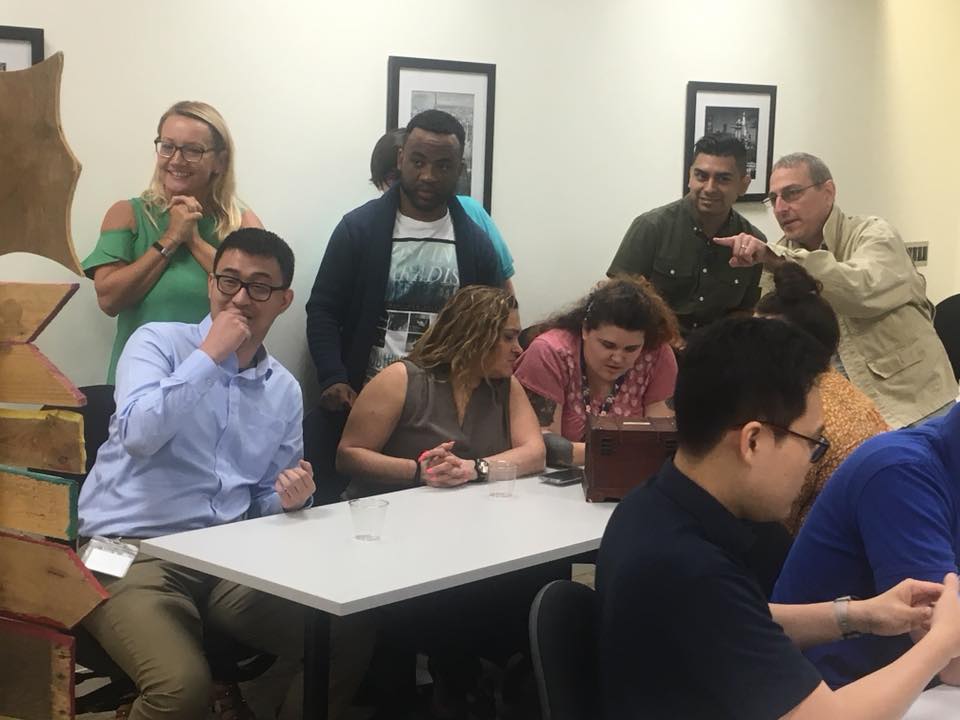Empower and Motivate Your Team with Puzzle Solving Team Building

In the fast-paced world of business, it is essential to have a motivated and empowered team to ensure success. One effective way to encourage team bonding and improve problem-solving skills is through puzzle solving team building exercises. These activities not only promote creativity and collaboration but also foster a sense of accomplishment and camaraderie among team members. In this blog, we will explore the benefits of puzzle solving team building exercises and provide practical tips on how to implement them in your organization.
Benefits of Puzzle Solving Team Building
- Improved Problem-Solving Skills
Puzzle solving exercises help team members develop their critical thinking and analytical skills. By working together to solve complex problems, they learn to identify patterns, evaluate alternatives, and apply logical reasoning to reach a solution. These skills are not only valuable in the context of team building but also transferable to their day-to-day work.
- Enhanced Communication and Collaboration
Effective communication is the backbone of any successful team. Puzzle solving activities require team members to share information, listen to one another, and collaborate effectively to achieve a common goal. This helps them develop better communication skills and fosters a stronger sense of teamwork.
- Increased Motivation and Engagement
When team members are engaged in a challenging and fun activity, they tend to be more motivated to participate and contribute. Puzzle solving exercises can ignite a sense of excitement and friendly competition, which encourages team members to fully engage and give their best effort.
- Boosted Confidence and Empowerment
Successfully solving puzzles as a team can boost individual confidence and empower team members. As they work together to overcome challenges, they gain a sense of accomplishment and self-efficacy. This increased confidence can translate to their daily tasks, leading to improved performance and a more empowered team.
- Strengthened Relationships and Team Bonding
Puzzle solving exercises can help break down barriers and strengthen relationships among team members. As they work together, they get to know one another better, leading to increased trust and understanding. This improved team dynamic can have a positive impact on overall team performance and collaboration.
Tips for Implementing Puzzle Solving Team Building
- Choose the Right Puzzle
Select puzzles that are challenging but not impossible to solve. The aim is to engage and challenge your team without causing frustration. Consider the abilities and interests of your team members when choosing a puzzle. You can opt for physical puzzles, riddles, or online escape room-style activities.
- Set Clear Objectives and Expectations
Before starting the exercise, clearly communicate the objectives and expectations to your team. Explain how the activity will benefit them and the organization as a whole. This will help ensure everyone understands the purpose of the exercise and is motivated to participate.
- Establish a Safe and Supportive Environment
Create an atmosphere where team members feel comfortable sharing ideas and taking risks. Encourage open communication, active listening, and constructive feedback. Make sure to emphasize that there are no “wrong” answers in the puzzle-solving process, and that all contributions are valued.
- Promote Collaboration and Delegate Responsibilities
Encourage team members to work together and share their ideas. Assign roles or responsibilities to ensure everyone has a chance to contribute. This can help prevent one or two individuals from dominating the activity and promote a more inclusive environment. For example, you could assign roles such as a puzzle coordinator, timekeeper, or note-taker.
- Monitor and Guide the Process
As a team leader or facilitator, monitor the progress of the activity and provide guidance when necessary. Be prepared to step in if the team gets stuck or if conflicts arise. Offer hints or suggestions to help the team move forward while still encouraging them to find the solution on their own.
- Reflect and Debrief
After the activity is completed, gather the team for a debriefing session. Discuss the challenges faced, the strategies employed, and the lessons learned. Encourage team members to share their experiences and insights. Reflecting on the activity can help reinforce the skills developed and highlight areas for improvement.
- Celebrate Success
Acknowledge and celebrate the team’s success in solving the puzzle. This can help boost morale and foster a sense of accomplishment. Recognize individual contributions and emphasize the importance of teamwork in achieving the goal.
Conclusion
Puzzle solving team building exercises offer a unique and engaging way to empower and motivate your team. By incorporating these activities into your team-building repertoire, you can enhance problem-solving skills, improve communication, and strengthen relationships among team members. With careful planning and implementation, puzzle solving team building can become a valuable tool in fostering a cohesive, empowered, and motivated workforce.

 Next Post
Next Post